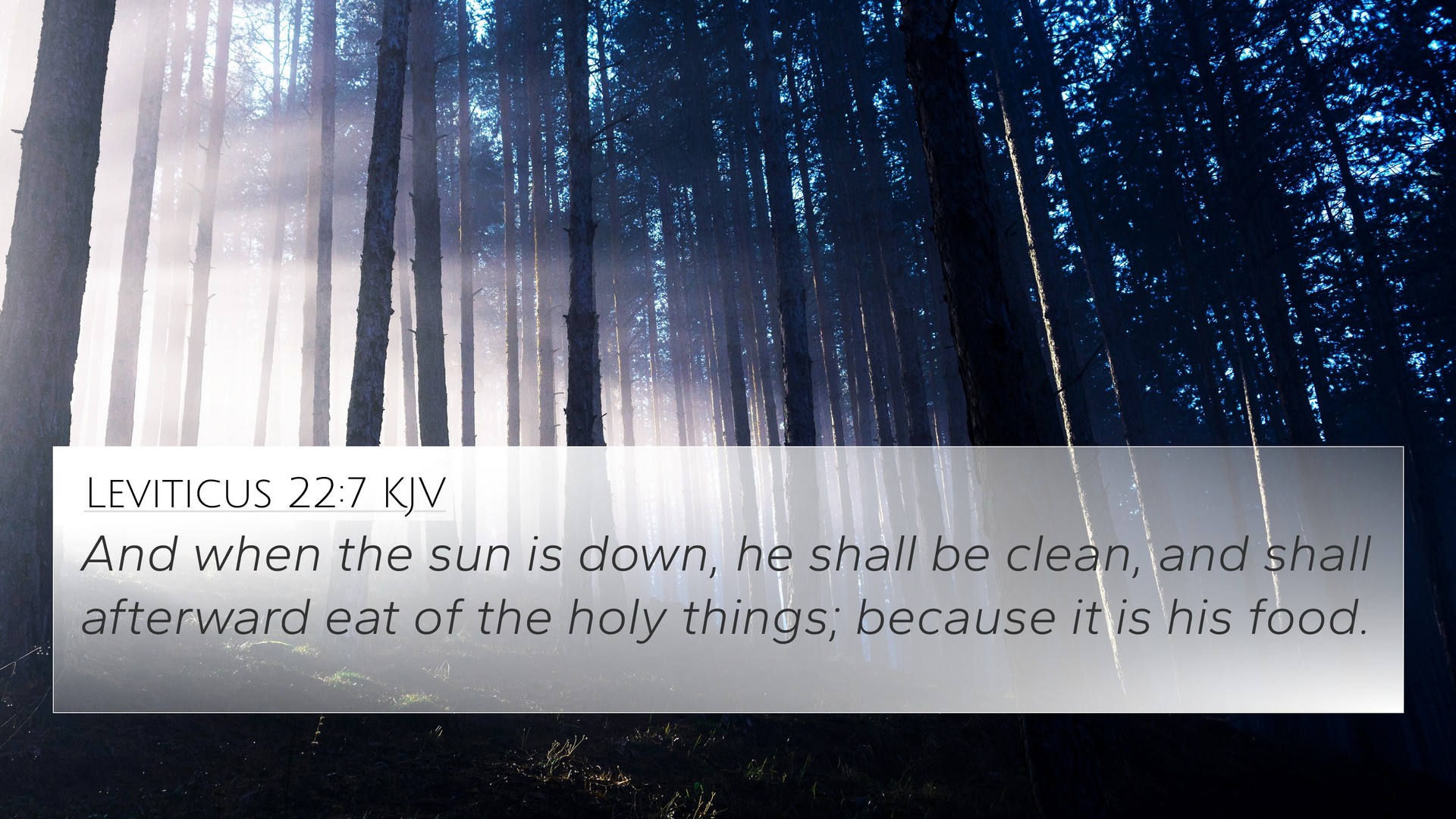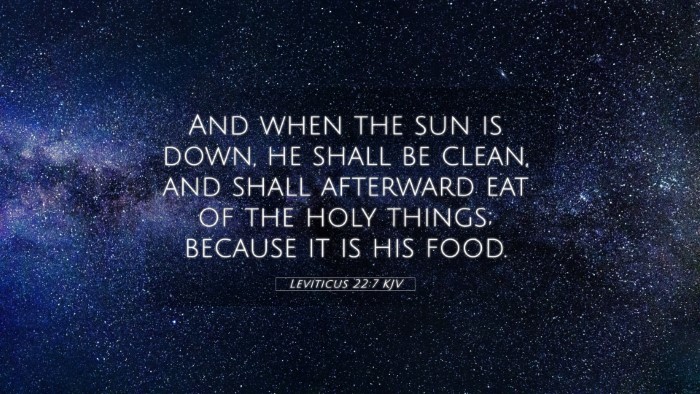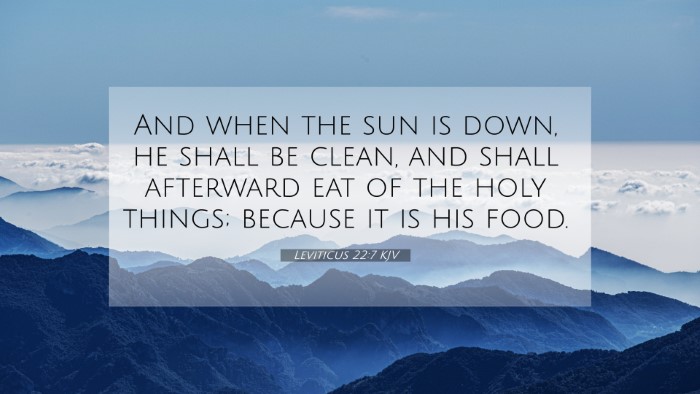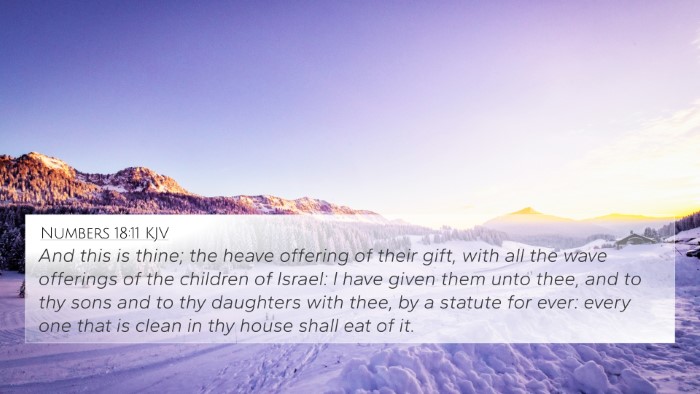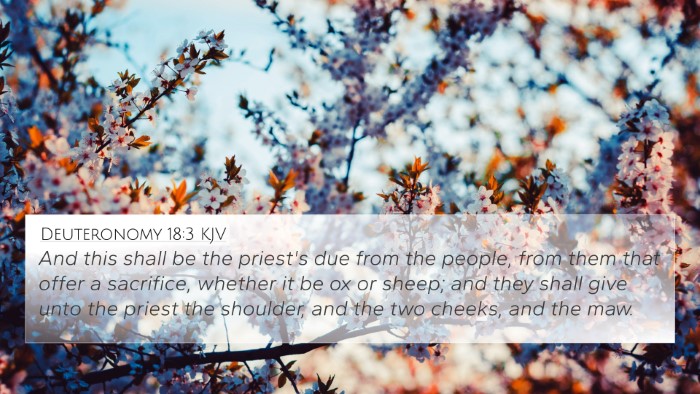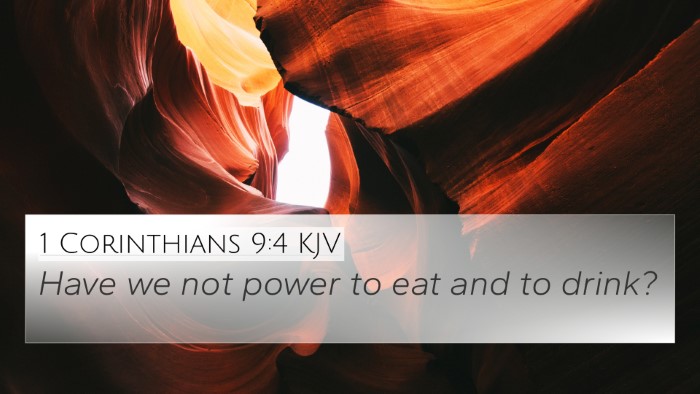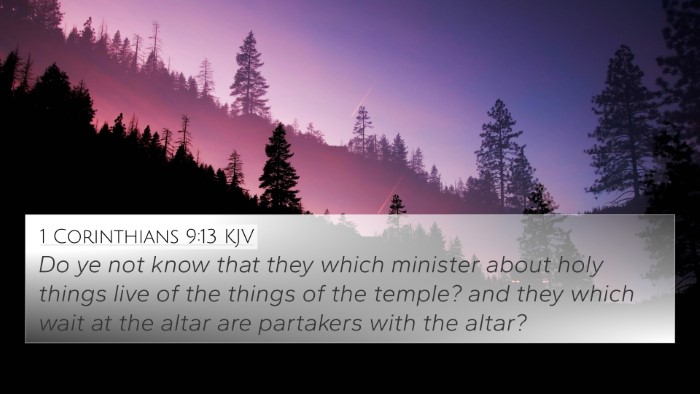Understanding Leviticus 22:7
Leviticus 22:7 states: "And when the sun is down, he shall be clean, and shall afterward eat of the holy things; because it is his food." This verse highlights the importance of ritual cleanliness in the context of the Levitical laws and the accessibility of God's provisions.
Meaning and Interpretation
This verse reflects on the systematic approach to ritual and moral purity stipulated in the Law of Moses. The notion of "clean" and "unclean" was vital for the Israelites, both socially and spiritually.
Commentary Insights
-
Matthew Henry's Commentary:
Henry elaborates on the significance of ritual purity, emphasizing that the laws were instituted to guide the Israelites in maintaining a holy relationship with God. He notes that the cleanliness required before consuming holy food was symbolic of a deeper spiritual readiness.
-
Albert Barnes' Notes:
Barnes discusses the procedural aspect of the regulations, pointing out that the sun's setting marked the end of the day and thus a time when one could partake in sacred food after being deemed clean. He highlights the inclusivity of God’s provisions, who allows the faithful to enjoy fellowship with Him.
-
Adam Clarke's Commentary:
Clarke connects this verse to the broader narrative of holiness in the community, indicating that the emphasis was on preparing oneself for divine acceptance. He elucidates how these regulations created a framework for worship and communion with God.
Cross-References to Leviticus 22:7
To further understand the significance of this verse, it's useful to explore its connections with other scriptures:
- Exodus 12:19: Discusses the importance of maintaining holiness during the Passover.
- Leviticus 11:44-45: Highlights the call to holiness as God is holy.
- Numbers 19:21: Addresses the implications of being unclean and the purification process.
- 1 Peter 1:16: New Testament affirmation of holiness, quoting Leviticus.
- Matthew 5:8: "Blessed are the pure in heart...", correlating purity with spiritual blessings.
- James 4:8: A call to draw near to God, urging purity in heart and actions.
- Hebrews 10:22: Encourages believers to approach God with a sincere heart and full assurance of faith, likening to the need for purity before approaching holy things.
Thematic Connections
Leviticus 22:7 ties into profound themes of:
- Purity: The necessity of being ritually clean to engage in sacred activities.
- Fellowship: The role of cleanliness in maintaining fellowship with God.
- Holiness: The overarching theme of God’s holiness and expectations for His people.
Applications and Reflections
In a modern context, this verse can serve as a reflection on how one prepares oneself spiritually to partake in God's blessings. Just as the ancient Israelites adhered to laws of cleanliness, believers are called to pursue a life of purity and holiness, enabling communion with God.
Conclusion
Leviticus 22:7 encapsulates the importance of ritual cleanliness and its implications for communal and individual worship. By understanding its meaning, we can appreciate the intricate relationships between various scriptures, fostering deeper insights into our faith and practices.
Utilizing Cross-References
Beyond this particular verse, utilizing a bible concordance or a bible cross-reference guide can enhance your study of the Scriptures. These tools help identify connections between verses, contributing to a more comprehensive understanding of Biblical themes and the overall narrative.
For believers seeking to engage with the text, how to use bible cross-references effectively enriches the theological experience, allowing for a detailed analysis of the Biblical texts and deepening one's faith through an informed study of the connections across the canon.
